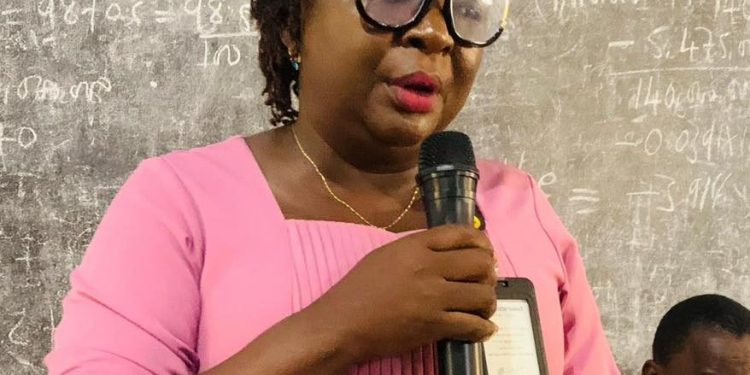By Hassan Osman Kargbo
ActionAid- Sierra Leone, in partnership with the Women’s Forum for Human Rights and Democracy (WOFHRAD-SL), has launched a Green Initiative aimed at fostering a climate-friendly environment, strengthening food sovereignty, and driving economic empowerment in ten schools and communities across the northern region.
The launch ceremony was held in Makumpbana, where community leaders, teachers, pupils, and residents gathered to embrace the project. The initiative, fully funded by ActionAid through its sponsorship program, represents a practical step towards addressing the growing impacts of climate change in Sierra Leone.
Speaking at the event, Fatmata Jalloh, Regional Manager of ActionAid North, explained that the initiative is guided by ActionAid’s four-year country strategy paper, which places climate resilience and livelihoods as a key priority. She noted that the project is particularly focused on disaster-prone communities where the effects of climate change are most visible.
“We are focusing on areas that are vulnerable to climate-related disasters to provide them with the right knowledge. Deforestation is a major driver of climate change, and our experts are here to equip participants with practical skills. For example, if one cuts down a tree, they must plant five as a replacement,” Jalloh emphasized.
She further urged communities to take collective responsibility for climate action, pointing out that safeguarding the environment is a duty that requires national ownership.
Henrietta Bangura, Project Officer of WOFHRAD-SL, said the Green Initiative would directly support ten schools across selected communities with the supply of fruit seeds for planting. According to her, the schools were carefully chosen through a consultative process to ensure maximum impact during the pilot phase.
“Through our long-term partnership with ActionAid, we identified these schools and communities for the first phase. We want to encourage the establishment of green clubs in schools so that pupils can nurture the seeds, monitor their growth, and sustain this initiative beyond its pilot stage,” she stated.
She added that the initiative goes beyond tree planting, as it encourages behavioral change, instills environmental consciousness in young people, and builds a culture of responsibility for future generations.
Mohamed A. Bangura, Head Teacher of Young Muslim Primary School, one of the beneficiary schools, expressed gratitude to ActionAid and its partners. He described the intervention as timely, noting that the lack of trees in many communities has worsened the impact of climate change.
“It is very difficult to find mature trees where I come from. This initiative will help us greatly as a school and community. We have already experienced climate disasters, such as the unroofing of a sister school due to heavy winds, which could have been minimized if trees were present to serve as windbreaks,” he said.
He assured the partners that his school would fully take ownership of the project and ensure that pupils and staff nurture the trees for long-term benefits.
The Green Initiative seeks to improve environmental sustainability by encouraging reforestation and school-based climate action, while also promoting food sovereignty through the planting of fruit trees. By building local capacity, the project is expected to empower communities with skills that will reduce their vulnerability to climate shocks and create opportunities for long-term economic empowerment.
With climate change posing increasing threats to Sierra Leone’s agriculture, infrastructure, and livelihoods, the Green Initiative stands as a beacon of hope in building resilience and ensuring that communities adapt to protect both their environment and future.













